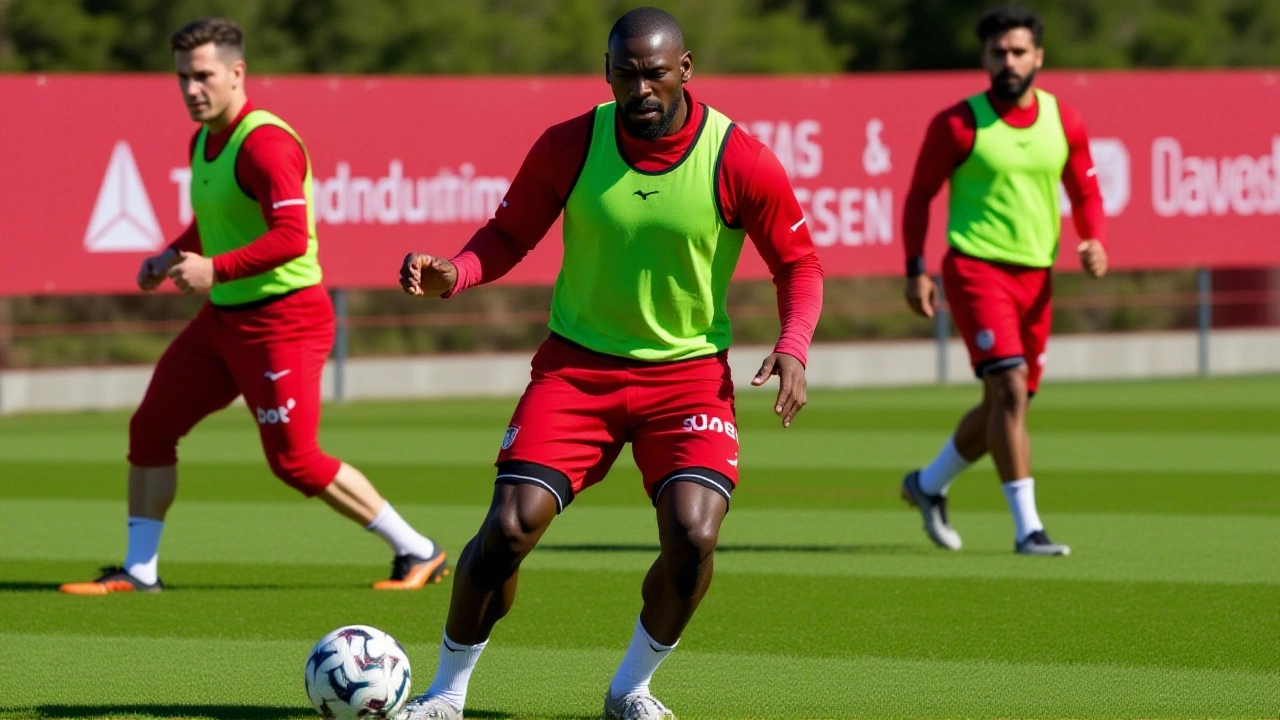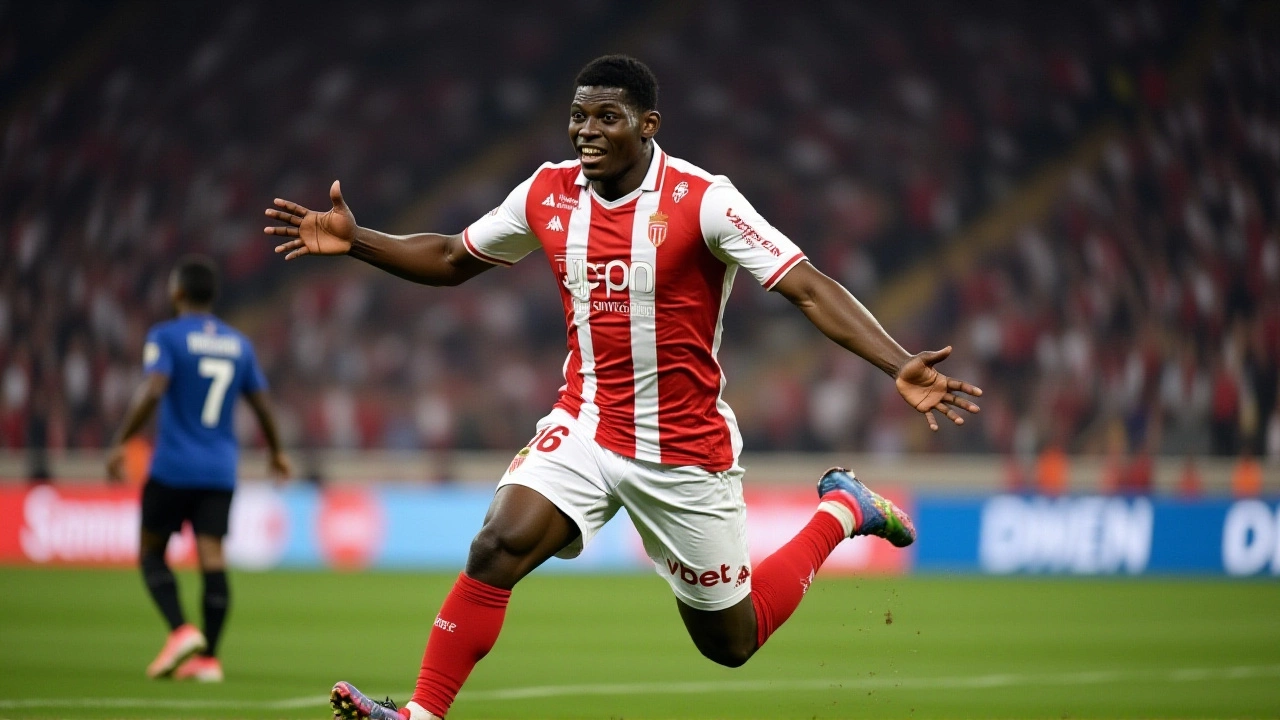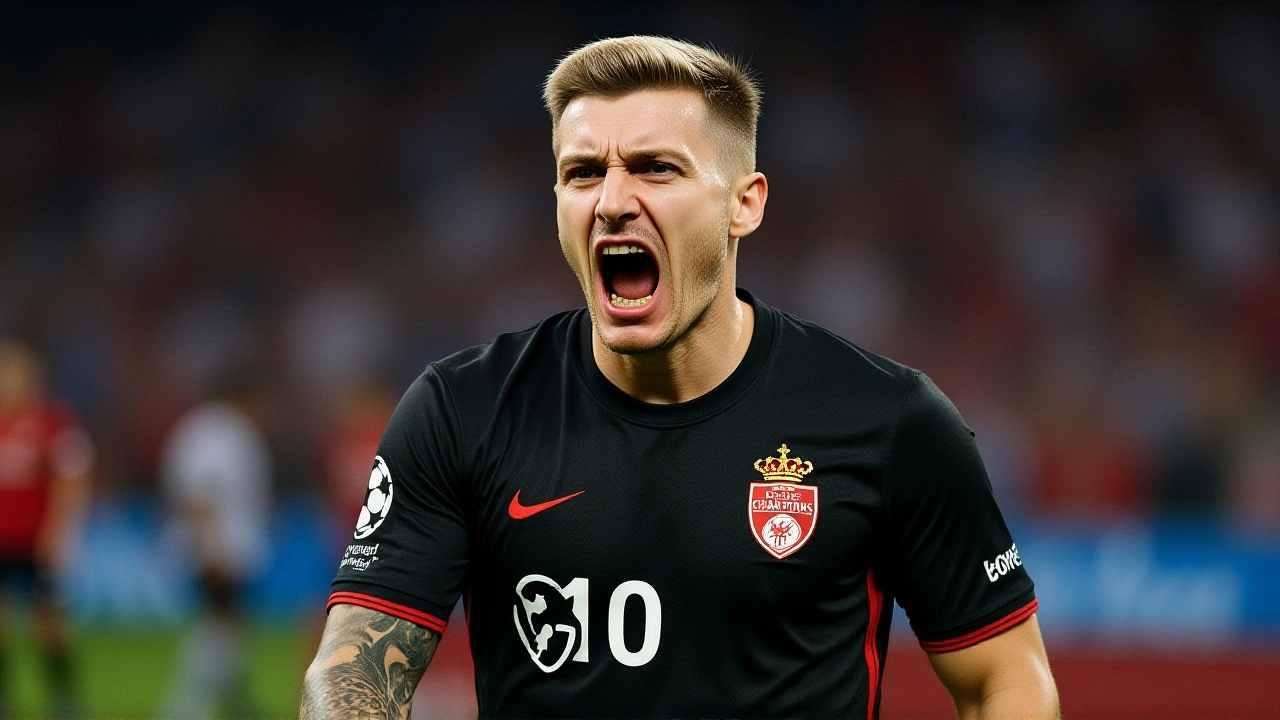When Club Brugge KV took the field at Jan Breydelstadion on September 18, 2025, no one expected a massacre. But by halftime, the Belgian Pro League side had turned the Champions League on its head—4-1 against AS Monaco FC, with three goals before the break and a performance that left the French giants stunned. It wasn’t just a win. It was a statement.
A First-Half Blitz That Shattered Expectations
The match began with the usual tension of European football, but within 15 minutes, disaster struck for Club Brugge: their 37-year-old goalkeeper Thibaut Mignolet, a veteran with 30 Belgian caps, limped off after a routine save. Most teams would’ve folded. Not this one. Instead, Club Brugge KV seized control. In the 32nd minute, 21-year-old Italian forward Nicolo Tresoldi—making his Champions League debut—slipped through Monaco’s backline and finished coolly, assisted by captain Hans Vanaken, the 33-year-old maestro who’s been the heartbeat of Brugge for nearly a decade. Two minutes later, a corner kick was half-cleared, and Nigerian midfielder Raphael Onyedika, 23, powered home the second. Vanaken completed the hat-trick of goals before the whistle with a volley that kissed the crossbar on its way in. It was pure, unadulterated chaos—and Brugge loved every second.Monaco’s Collapse and the Late Nail in the Coffin
The second half was a shadow of what came before. Monaco, managed by Austrian tactician Adi Hütter, looked lost. Their midfield, usually so precise, was disjointed. Serbian teenager Aleksandar Stankovic, 19, came closest with a header that just missed, but the damage was already done. Then, with 15 minutes left, Mamadou Diakhon, the 20-year-old Senegalese striker, danced past two defenders, dummyed a pass, and fired low into the far corner. The crowd roared. The scoreboard screamed. And when Ansu Fati, 22, pulled one back for Monaco in the 87th minute, it felt like a formality—nothing more than a consolation prize for a team that never looked like they belonged on the pitch.
Leverkusen’s Gritty Comeback in Lisbon
While Brugge dazzled, Bayer 04 Leverkusen were grinding out survival. On November 4, 2025, in front of 57,000 at Estádio da Luz in Lisbon, they edged Sport Lisboa e Benfica 1-0. The goal? A classic Patrik Schick moment. The 29-year-old Czech striker, who had been silent since their 2-7 drubbing by Paris Saint-Germain, rose above the Benfica defense in the 65th minute and headed home a perfectly weighted cross from Jeremie Frimpong. It wasn’t pretty. But it was enough. After a disastrous start to the campaign—where they conceded seven in one game—this win was the lifeline they desperately needed.The Ripple Effect: Who’s Up, Who’s Down
Club Brugge’s win extended their unbeaten home streak to seven games (six wins, one draw), a remarkable feat for a team that finished 24th in the Belgian top flight last season. Their next test? An away trip to Atalanta BC in Bergamo. Meanwhile, Monaco—now sitting near the bottom of the table—face a brutal Matchday 5 clash against Manchester City FC at Stade Louis II. Lose that, and their knockout hopes evaporate.And then there’s the broader context. The 2025/26 Champions League format—36 teams, no group stage, just a single league phase—has turned every match into a high-stakes war. The top eight qualify automatically. Teams 9–24 fight for the remaining knockout spots. The bottom 12? Gone. No Europa League safety net. That’s why Leverkusen’s win mattered so much. One point could mean the difference between European glory and oblivion.

What’s Next? The Calendar Doesn’t Wait
Club Brugge’s next home game? December 10, 2025, against FC Barcelona—a rematch of their 3-3 thriller earlier in the season. If they win, they’ll be in the top eight. If they draw? Still in contention. If they lose? Suddenly, the pressure mounts. For Monaco, it’s a do-or-die against City. For Leverkusen, it’s about consistency. One win doesn’t fix everything—but it’s a start.Meanwhile, the rest of Europe is watching. Bayern Munich’s 4-0 demolition of Brugge in October still stings. Luis Díaz’s brace against PSG. Kane’s lethal precision. The new format means no easy games. And for a club like Brugge—small budget, passionate fans, a stadium that feels like a fortress—it’s a chance to rewrite history.
Frequently Asked Questions
How did Club Brugge manage to dominate Monaco despite losing their goalkeeper early?
Despite Thibaut Mignolet’s injury, Club Brugge’s midfield trio—led by Hans Vanaken—controlled possession with ruthless efficiency. Their defensive shape shifted to a 4-2-3-1, with Onyedika and Tresoldi pressing high, forcing Monaco into errors. The team’s cohesion, honed over months under manager Ivan Leko, allowed them to absorb pressure and strike with lethal counterattacks, turning adversity into opportunity.
Why is Hans Vanaken considered the key player in this Champions League campaign?
Vanaken, 33, has been the engine of Club Brugge for over a decade. Against Monaco, he scored one goal, assisted two, completed 92% of his passes, and made seven recoveries. His vision and composure under pressure are unmatched in the league phase. He’s not just the captain—he’s the tactical linchpin, dictating tempo and creating chances others can’t even see.
What does this result mean for Monaco’s Champions League hopes?
Monaco now sits 21st in the standings after four matches, just above the relegation zone. A loss to Manchester City on Matchday 5 would all but eliminate them. Their attack, led by Ansu Fati, has been inconsistent, and their defense has conceded 11 goals in four games. Without major tactical changes, their European campaign is in serious jeopardy.
How has the new 36-team format changed the Champions League?
The new format removes traditional groups, forcing every team to play eight matches against random opponents. There’s no safe draw—every result matters. Teams finishing 9th–24th enter a playoff, and 25th–36th are out entirely. This rewards consistency and punishes complacency. Clubs like Brugge, once considered underdogs, now have a real shot at the knockout rounds.
Is Club Brugge’s success sustainable beyond this season?
Their success hinges on retaining key players like Vanaken and Onyedika, whose market value has surged since September. With no UEFA prize money guarantee for finishing in the top 24, financial pressure is mounting. But their youth academy—producing talents like Tresoldi and Diakhon—offers long-term hope. If they keep their core, they could become a regular in the knockout phase.
What’s the significance of Leverkusen’s 1-0 win over Benfica?
After a 2-7 thrashing by PSG, Leverkusen’s win was a psychological reset. Schick’s goal, his first in the Champions League this season, restored belief. With three wins now, they’re just one point behind the top eight. Their next match against Real Madrid could be the defining moment of their campaign—win, and they’re back in the race. Lose, and the pressure returns.
